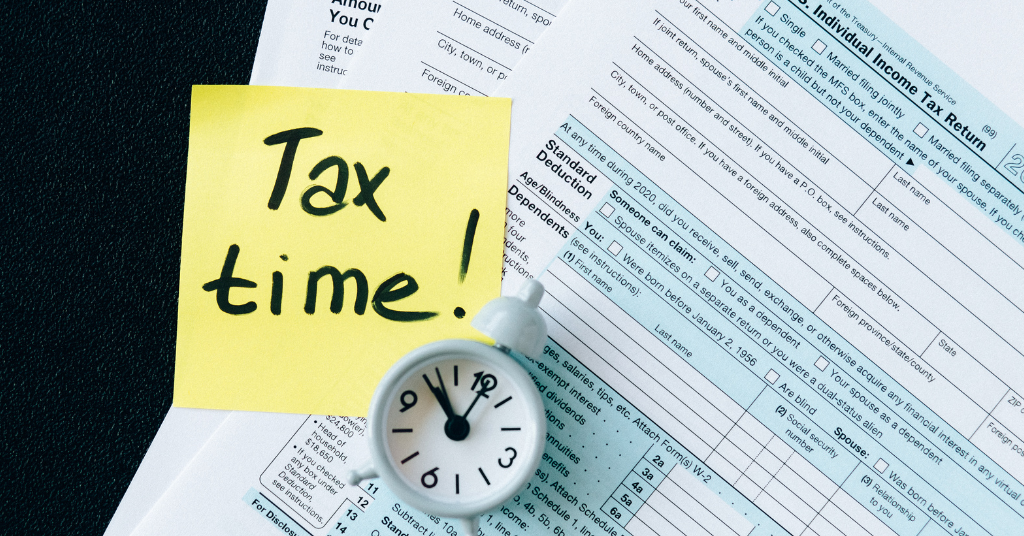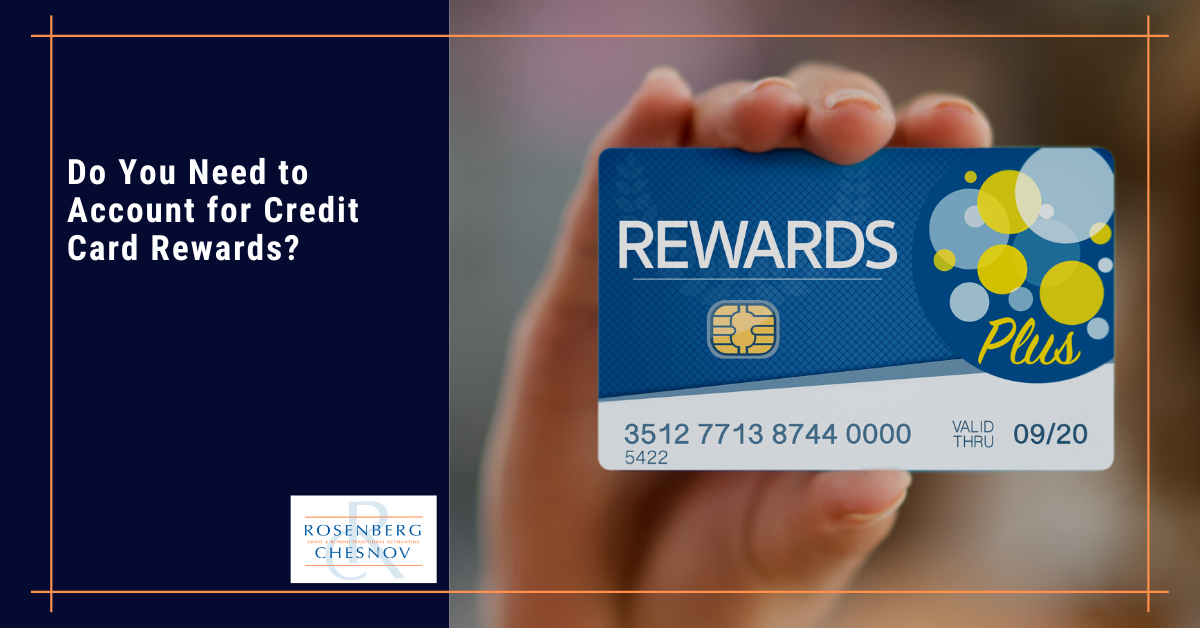

Maximize Your 2024 Refund: Tax Breaks You Might Be Missing
Category: Accounting
When strategically managed and tailored to your spending habits, credit card rewards can be a great way to earn airline miles, bonuses, and more — not to mention putting significant amounts of cash back into your pocket.
As a credit card user, this is great. As a taxpayer, it can be a bit more complex.
The good news is that the IRS does not tax most credit card rewards.
Here’s the bad news: they do tax some rewards.
Understanding when your rewards need to be reported as income, how to report them, and how to keep track of it all can be confusing; on this particular subject, the IRS is not much help.
So, what do you need to know about your credit card rewards when tax season rolls around?
In this post, we’ll explore how credit card rewards work, when the IRS does and does not tax rewards as income, and how to start accounting for your credit card rewards, whether your card is for personal or business use.


Rewards credit cards operate on a simple yet enticing principle: When you use your credit card for purchases, you earn various “rewards,” such as cashback, travel points, or loyalty program benefits.
Often, it works like this: the card issuer allocates a certain percentage of the transaction value as rewards. For example, a cashback reward might entail earning back a portion of the total purchase amount. This could range from 1% to 5% or even higher, depending on the specific credit card and the type of transaction.
Regarding travel rewards, your credit card may offer points or miles for each dollar spent. These points can then be redeemed for travel-related expenses, such as flights, hotels, rental cars, or other travel perks.
Loyalty programs tied to credit card rewards often provide additional benefits, such as discounts, exclusive access to events, or special promotions with partner retailers.
In essence, credit card rewards incentivize you to use your card for everyday spending, offering tangible benefits ranging from extra cash in your pocket to memorable travel experiences.
Some key drawbacks associated with rewards credit cards can include:
It’s wise to weigh the benefits of a rewards card against the potential downsides. Careful consideration of your spending habits, the card’s terms, and your financial goals is essential to determine whether a rewards credit card fits you.
It’s also crucial to practice responsible credit card usage to avoid falling into debt or paying more in fees and interest than the value of the rewards you receive.
Generally, any taxpayer’s income can be subject to taxation, including credit card rewards. However, the IRS is uncharacteristically ambiguous on this subject, having published very little material on the subject…so things can get confusing quickly.
For example, in some cases, credit card rewards count as post-purchase rebates or discounts, not income, and are therefore not taxable. Likewise, the IRS may not consider a cashback bonus you earn using the card as taxable income.
On the other hand, a sign-up bonus may be subject to taxation.
Why?
Because it was offered as an incentive, without you having had to spend any money, it counts as income.
It all depends on the kind of rewards you receive and how you receive them.
To make a long story short, the answer to whether or not the IRS taxes credit card rewards is “Maybe.”
Some types of rewards that are generally not considered taxable income can include:
These types of common credit card rewards are generally nontaxable since they do not involve an exchange of cash or direct receipt of funds.
Again, it all depends.
The IRS only requires filing a Form 1099 when you receive taxable income over $600.
That means if you receive credit card rewards that do count as taxable and exceed $600, you need to report them as income using a 1099-MISC with your tax return.
If your taxable rewards are less than $600, you will not receive a 1099 — but remember, you still need to report all qualifying income on your tax return. If you need help determining whether your rewards qualify, it’s best to consult with tax professionals (like us!)
With so much potential confusion around the taxability of credit card rewards, one thing is clear: You should be keeping meticulous track of your rewards and accounting for them properly in your financial records.
That way, if you make an error or encounter some issue, you’ll be best equipped to correct or resolve it efficiently and on time.
Here’s an overview of some credit card rewards accounting best practices to get you started:
The simple answer is: Not usually.
However, when it comes to rewards from business credit cards, the rules are slightly different — and you must maintain good accounting practices.
For a business card, rewards like travel miles or points still count as discounts. However, they are discounts on a business expense, so you must subtract the reward amount from your reported business expenses.
Put another way; you cannot deduct those same expenses if you use rewards points or miles to pay for business expenses. After all, you didn’t pay for them!
While the IRS does address certain questions and concerns related to business credit cards, such as the valuation and timing of income and distinguishing between benefits derived from business-related expenses as opposed to those from personal expenses, they have not established official guidelines for this differentiation.
Consequently, the IRS has chosen to refrain from actively enforcing taxation on promotional perks like frequent flyer miles.
In accounting for business, as in personal credit card rewards, accuracy and thoroughness are essential not only to ensuring compliance but also to maximizing your tax strategy to take advantage of every possible benefit.
If you are a client and would like to book a consultation, call us at +1 (212) 382-3939 or contact us here to set up a time.
If you aren’t a client, why not? We can take care of your accounting, bookkeeping, tax, and CFO needs so that you don’t have to worry about any of them. Interested? Contact us here to set up a no-obligation consultation.
Interested in receiving updates in your mailbox? Check out our newsletter, which is full of information you can use. It comes out once every two weeks, and you can register for it below.


Category: Accounting


Category: Accounting


Category: Accounting
Send us a message and we will contact you as soon as possible.
Jeff Coyle, CPA, Partner of Rosenberg Chesnov, has been with the firm since 2015. He joined the firm after 20 years of business and accounting experience where he learned the value of accurate reporting, using financial information as a basis for good business decisions and the importance of accounting for management.
He is a diligent financial professional, able to manage the details and turn them into relevant business leading information. He has a strong financial background in construction, technology, consulting services and risk management. He also knows what it takes to create organizations having built teams, grown companies and designed processes for financial analysis and reporting.
His business experience includes:
Creating and preparing financial reporting, budgeting and forecasting.
Planning and preparation of GAAP and other basis financial statements.
Providing insight on financial results and providing advice based on those results.
Jeff also has a long history of helping individuals manage their taxes and plan their finances including:
Income tax planning and strategy.
Filing quarterly and annual taxes.
Audit support.
General financial and planning advice.
Prior to joining the firm in 2015, Jeff was in the private sector where he held senior financial and management positions including Controller and Chief Financial Officer. He has experience across industries, including construction, technology and professional services which gives him a deep understanding of business.
Jeff graduated from Montclair State University, he is a CPA and member of the American Institute of Certified Public Accountants, New York State Society of Certified Public Accountants and New Jersey State Society of Public Accountants.
Jody H. Chesnov, CPA, Managing Partner of Rosenberg Chesnov, has been with the firm since 2004. After a career of public accounting and general management, Jody knows the value of good financials. Clarity, decision making, and strategy all start with the facts – Jody has been revealing the facts and turning them into good business results for more than three decades.
He takes a pragmatic approach to accounting, finance and business. His work has supported many companies on their path to growth, including helping them find investors, manage scaling and overcome hurdles. His experience and passion for business reach beyond accounting and he helps businesses focus on what the numbers mean organizationally, operationally and financially.
He has a particular expertise in early-stage growth companies. His strengths lie in cutting through the noise to come up with useful, out of the box, solutions that support clients in building their businesses and realizing their larger visions.
Prior to joining the firm in 2004, Jody was in the private sector where he held senior financial and management positions including General Manager, Chief Financial Officer and Controller. He has experience across industries, which gives him a deep understanding of business.
Jody graduated with a BBA in Accounting from Baruch College, he is a CPA and member of the American Institute of Certified Public Accountants and New York State Society of Certified Public Accountants.
In addition to delivering above and beyond accounting results, Jody is a member of the NYSCPA’s Emerging Tech Entrepreneurial Committee (ETEC), Private Equity and Venture Capital Committee and Family Office Committee.
He is an angel investor through the Westchester Angels, and has served as an advisor for many startup companies and as a mentor through the Founders Institute.